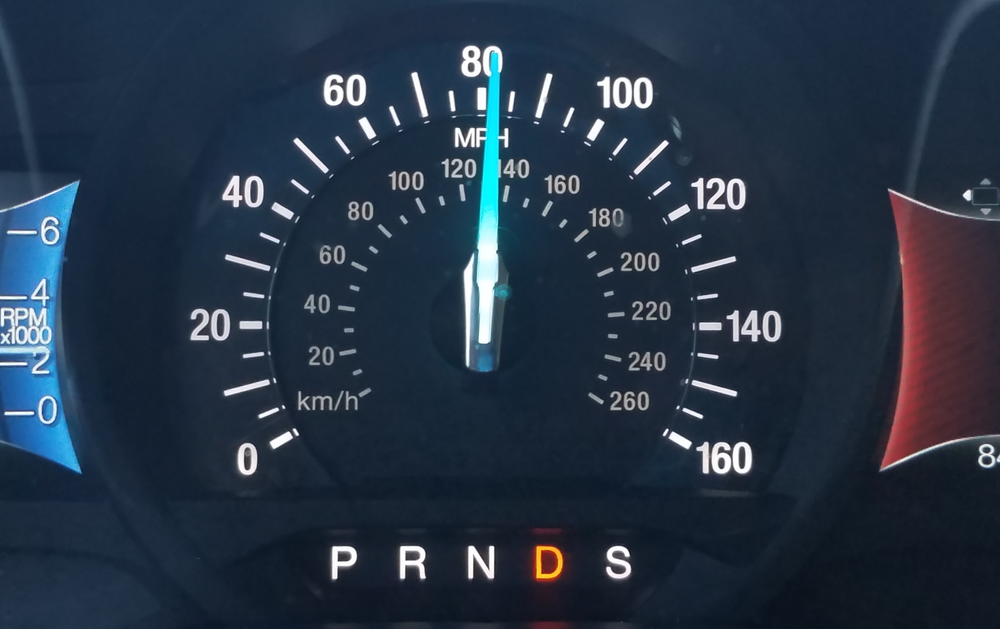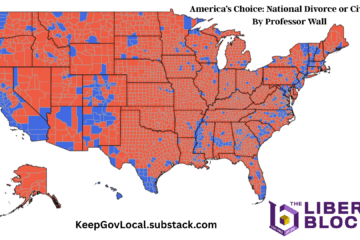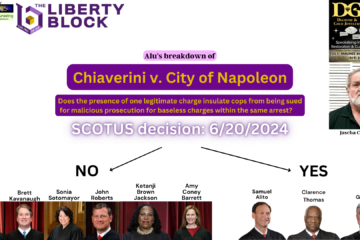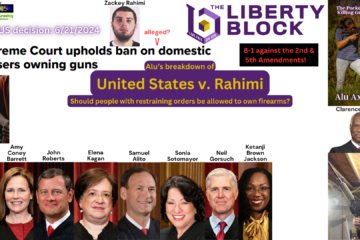The next time that you find yourself driving on the highway, try to obey the speed limit. If you live in New Hampshire like I do, this probably means that you’ll be driving slower than 70 MPH. I guarantee that you’ll be passed by nearly every single driver. Technically, they are all breaking the law. So, why do we have speed limit laws?
In 1974, the federal government mandated a nationwide 55 MPH speed limit. Contrary to popular belief, Congress did not pass this law for ‘public safety’. It was a direct response to the oil embargo and rising costs of gasoline in the US. The federal law was eventually loosened and then repealed, though the federal government still coerces states into maintaining certain speed limit laws.

In one of the greatest recoveries of all time, the authoritarian regime has done a fantastic job over the past few decades convincing Americans that speed limits correlate with safety. Most people seem to associate speed limits (and most traffic laws) with safety. Decades ago, smoking was considered a harmless habit. We have since learned that we were wrong. Marijuana used to be considered horrifically dangerous. Though the federal government still classifies it in the most dangerous category, the American public does seem to be coming around to the fact that marijuana is not as harmful as heroin or methamphetamine. Our society may soon realize that speed limits have very little relation to safety.
1) Firstly, we must acknowledge the inconvenient fact that nearly zero drivers respect speed limits. In my experiences driving through nearly every state, drivers violate speed limits more than pedestrians J-walk. A study conducted by Purdue University found that 100% of the drivers surveyed believed that it’s okay to violate the speed limit, and 36% of them said that it’s totally safe to exceed the speed limit by 20 MPH. Facts also show that Montana was safer when it had no daytime speed limit and fatalities increased significantly when the Montana Supreme Court forced them to implement and enforce speed limits.
2) Which is safer, driving 55 MPH for 3 hours at night or driving at 80 MPH for 2 hours at night? If you’ve ever driven at night, you know that driving slowly on a dark, straight, boring highway could be the easiest way to fall asleep – which could be the easiest way to meet your maker. If you could spend 30-50% less time on the road while also driving more safely and with more focus, you could have a massive decrease in the chance that you’ll fall asleep behind the wheel.
3) If you are being honest with yourself, you might actually find that you are more likely to focus on the road if you are driving around 80 MPH and you are more likely to engage in mobile device use (texting, music, etc.) if you are driving around 50 MPH. Why encourage drivers to text and drive?
4) Police chases are horrifically dangerous – much more dangerous than cruising at 80 MPH. Think about driving a few hours away and cruising at 80 MPH for the bulk of your highway drive. Does that scenario sound dangerous to you? Probably not. Now, imagine that an angry enforcer is trying to catch up to you so that he could earn a living. You glance at the rear-view mirror and you see a car weaving through traffic and trying to catch up to you. You glance again and think to yourself: “He must be going around 100 MPH! And he’s weaving! How reckless!” You then realize that the car has blue and red lights, so its driver isn’t a criminal. If you pull over, you will be extorted for a few hundred dollars and possibly end up having your license suspended (or in prison for a few weeks). If you don’t pull over immediately, you could become one of the thousands of police-chase victims.
To recap, since speeding is dangerous, let’s send police to be super-dangerous to teach you a lesson. Wouldn’t that be like having cops snort cocaine in order to chase down people who ingest marijuana?
As I mentioned in prior articles and shows, if you really believe that exceeding the speed limit is dangerous, you should support a system that automatically fines any driver that exceeds the speed limit. It improves enforcement to 100%, it saves time and money, and it removes the danger involved in police conducting traffic stops and chases. Be honest with yourself. Would you support such a law? If you would not support automatic fines and/or speed inhibitors being mandatory in every vehicle, you are logically inconsistent.
5) Let’s face the facts: Speed limits in every state are controlled by the federal government and exist primarily for control and for revenue. ‘Safety’ is just their excuse.
Yes, I am aware that not every driver who exceeds the posted speed limit is punished every time. This fact makes speed limits into more of a warped joke. Police officers are given the power to decide who to target. They ticket people randomly or arbitrarily or based on prejudice. How is it fair that a priest who is clocked at 71 MPH might be punished but the rapist driving 95 MPH might be missed?
People generally do not want to die or kill others. Therefore, they drive in a manner that they feel is appropriate. In the snow, for example, people often drive well below the speed limit. When the roads are dry, people often exceed the speed limit. As is often the case, laws hardly affect the behavior of the general public. They just give law enforcement massive, broad powers.
The biggest hypocrisy? Police officers who enforce these laws violate the laws all of the time. Police regularly exceed speed limits. While texting and using their vehicle-mounted laptops. If the people who enforce the law won’t follow the law, then what type of society are we living in?
I’ll end with an excellent quote from ‘Atlas Shrugged’ that I was recently reminded of:
“Did you really think we want those laws observed?” said Dr. Ferris. “We want them to be broken. You’d better get it straight that it’s not a bunch of boy scouts you’re up against… We’re after power and we mean it… There’s no way to rule innocent men. The only power any government has is the power to crack down on criminals. Well, when there aren’t enough criminals one makes them. One declares so many things to be a crime that it becomes impossible for men to live without breaking laws. Who wants a nation of law-abiding citizens? What’s there in that for anyone? But just pass the kind of laws that can neither be observed nor enforced or objectively interpreted – and you create a nation of law-breakers – and then you cash in on guilt. Now that’s the system, Mr. Reardon, that’s the game, and once you understand it, you’ll be much easier to deal with.
How can we decriminalize normal driving? It would be a tough battle, but it is possible. We’ll discuss that in a future article.


